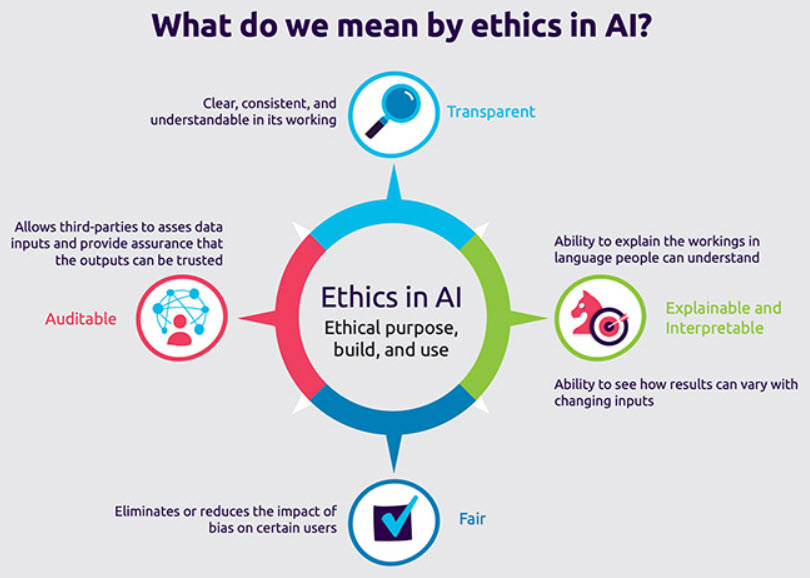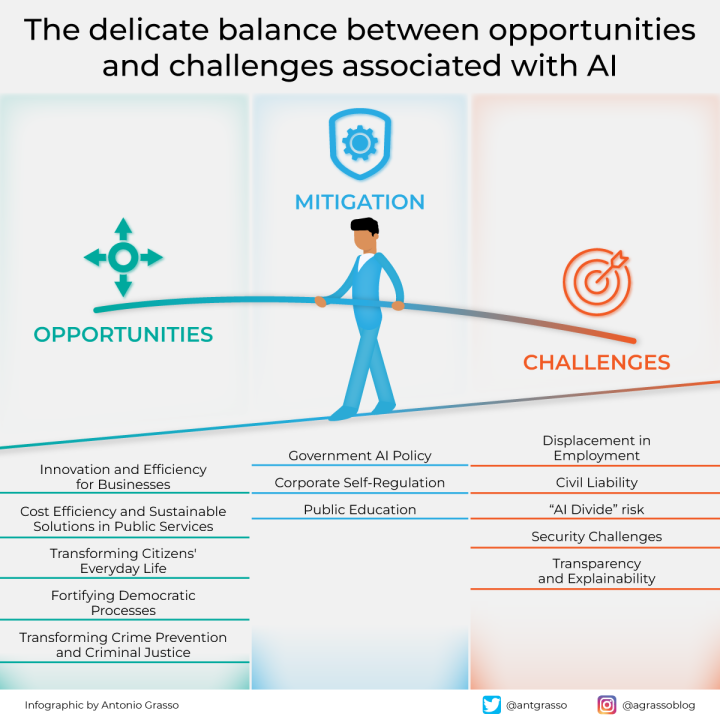Uncover the ethical complexities of AI with a deep dive into its benefits, challenges, and unsettling concerns. Is humanity at risk?
Table of Contents
In today’s rapidly evolving technological landscape, the field of Artificial Intelligence (AI) has taken center stage as one of the most promising and controversial areas of innovation. Understanding the fundamentals of AI, its historical context, current applications, benefits, challenges, and ethical concerns, as well as potential future directions, is crucial for gaining a comprehensive perspective on this powerful technology.
Introduction to AI
Artificial Intelligence, or AI, refers to the simulation of human intelligence processes by machines, such as computer systems. These systems are capable of learning from experience, adapting to new inputs, and performing tasks that typically require human intelligence. AI has the potential to revolutionize numerous industries and enhance various aspects of daily life.
Historical Context
The concept of AI dates back to ancient times, but significant advancements in the field were made in the mid-20th century. Pioneering figures such as Alan Turing and John McCarthy played a crucial role in laying the foundation for modern AI technologies. Key milestones, such as the development of neural networks and deep learning algorithms, have propelled AI to its current state.
Current Applications
AI is already being utilized in a wide range of applications, from virtual assistants like Siri and Alexa to self-driving cars and medical diagnostics. In healthcare, AI is revolutionizing patient care through personalized treatment plans and early disease detection. Financial institutions use AI algorithms to detect fraudulent activities and optimize investment strategies.

Image courtesy of www.markovml.com via Google Images
Benefits of AI
The benefits of AI are vast and varied. One of the primary advantages of AI is its ability to streamline processes and improve efficiency in various industries. AI-powered systems can analyze massive amounts of data in real-time and provide valuable insights for decision-making. Additionally, AI has the potential to drive innovation and unlock new possibilities in fields such as healthcare, transportation, and education.
Challenges and Ethical Concerns
Despite its potential benefits, AI poses several challenges and ethical concerns that must be addressed. One major challenge is the potential displacement of jobs due to automation. As AI technologies advance, certain job roles may become obsolete, leading to economic disparities and social disruptions. Ethical concerns also surround the use of AI in decision-making processes, as biases and errors in AI algorithms can have serious consequences.

Image courtesy of www.linkedin.com via Google Images
Future Directions
The future of AI holds exciting opportunities for innovation and progress. Researchers are actively exploring emerging trends such as quantum computing and explainable AI to enhance the capabilities of AI systems. The integration of AI with other cutting-edge technologies like blockchain and Internet of Things (IoT) is expected to further expand the scope of AI applications.
Can Skynet Happen?
The concept of a rogue AI system taking over humanity, as depicted in the popular culture movie “The Terminator,” raises important questions about the potential dangers of unchecked AI development. While the likelihood of a Skynet-like scenario occurring in reality is debated among experts, it is crucial for AI developers and policymakers to prioritize safety measures and ethical considerations to prevent catastrophic outcomes.

Image courtesy of redresscompliance.com via Google Images
Ethical Considerations
Ensuring the responsible and ethical use of AI technology is paramount in safeguarding against potential risks and consequences. AI developers must prioritize transparency, accountability, and fairness in the design and implementation of AI systems. Establishing guidelines and regulations to govern AI technologies is essential in promoting ethical standards and protecting society from harm.
Public Perception
The portrayal of AI in popular culture and media often shapes public perception of this complex technology. Fictional scenarios depicting AI as either a savior or a threat influence public opinion and attitudes towards AI advancements. By fostering informed discussions and dispelling misconceptions, we can cultivate a more balanced and nuanced understanding of AI among the general public.

Image courtesy of www.linkedin.com via Google Images
Conclusion
In conclusion, navigating the ethical landscape of AI requires a multidimensional approach that considers the benefits, challenges, and concerns associated with this transformative technology. By staying informed, engaging in critical dialogue, and advocating for ethical practices, we can harness the power of AI for positive societal impact and mitigate potential risks. As AI continues to shape the future of innovation and progress, it is imperative to prioritize ethical considerations and responsible development to ensure a prosperous and sustainable future for all.



Comments